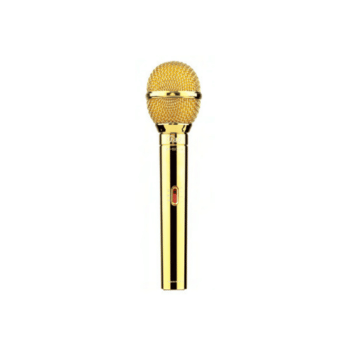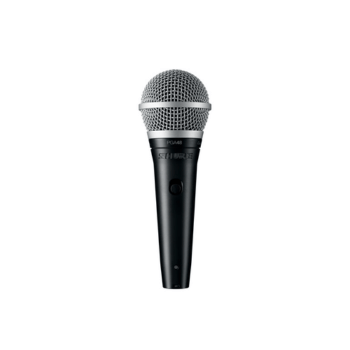introduction
A mosque microphone is one of the most important components that ensures that the sound reaches all worshippers, both inside and outside the mosque, clearly and powerfully. Since sound quality directly impacts the spiritual experience and reverence during prayer and sermons, choosing the right microphone is essential. In this article, we will discuss the types of mosque microphones, how to choose the most appropriate one, and the best microphones available on the market.
JDS Gold High Sensitivity Wired Lavalier Microphone

Types of mosque microphones
1. Boundary Microphones
- Placed on the surface of the pulpit or table.
- Picks up the sound from the speaker without having to hold the microphone.
- Suitable for sermons and religious lessons.
2. Wireless microphones
- It gives the imam and the preacher freedom of movement while speaking.
- It works with Bluetooth or radio frequency technology.
- Ideal for large mosques that require mobility during preaching.
3. Gooseneck Microphones
- Available in a flexible design that can be directed as needed.
- Often used on pulpits to provide high audio clarity.
- It has the ability to accurately capture sound while reducing ambient noise.
4. Headset Microphones
- Comes with a lightweight headband.
- It provides great convenience for speakers who need to speak freely without holding a microphone.
- Ideal for long lessons and dynamic speeches.
5. Minaret microphones
- Specially designed to clearly transmit the call to prayer outside the mosque.
- Resistant to weather conditions such as heat and humidity.
- It has a wide range and the ability to amplify sound over long distances.
Taiwanese wired pickup microphone JDS LS-101, black color, excellent sound performance

How to Choose the Perfect Mosque Microphone
1. Sound quality and clarity
- Choose a microphone that delivers clear audio, free from distortion and background noise.
- Make sure your microphone supports noise cancellation technology.
2. Type of use
- Determine whether you need a fixed microphone on the podium or a wireless microphone that gives you freedom of movement.
- For minarets, make sure to choose a weather-resistant microphone.
3. Range and coverage power
- Choose a microphone that covers the desired sound range inside and outside the mosque.
- Check if the microphone supports the mosque's internal audio system.
4. Durability and quality
- The microphone should be made of materials that are resistant to heavy use.
- Avoid cheap microphones that can wear out quickly.
Shure PGA48-QTR Wired Microphone

Tips to ensure optimal performance from mosque microphones
- Adjusting volume levels : Use the amplifier to adjust the volume level without distortion.
- Avoid electrical interference : Place the microphone away from devices that may cause interference.
- Routine Maintenance : Clean your microphone regularly to maintain its performance.
- Choosing the right speakers : Use speakers that match your microphone's specifications to ensure clear sound.
Conclusion
Choosing the right microphone for mosques is an essential step to ensuring high-quality, clear transmission of the call to prayer, sermons, and lessons. Make sure to choose a microphone that matches your mosque's needs in terms of sound quality, durability, and modern technology . Browse our collection now for the best deals on high-quality mosque microphones.

